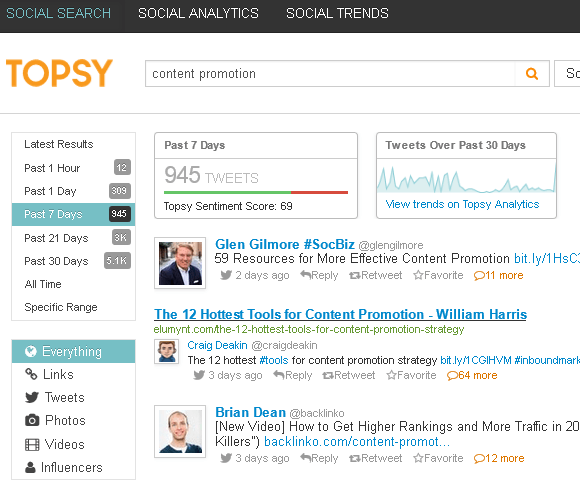Social media is a truly unique platform for businesses. With social media sites like Facebook and Twitter, you are able to form much stronger relationships with your customers and potential customers. You are able to interact and engage with them, in a way that simply wasn’t possible before. According to statistics, 74% of consumers say that social media influences their purchasing decisions, making sites like Facebook an invaluable tool for businesses.
If you use social media sites the right way, you will increase your company’s visibility, further increase brand awareness, and even increase your conversion rates. When social media is done wrong, however, it can have a negative impact on your business. Through mediocre posts, ill-timed tweets and poor social media management, companies can end up ruining their reputation. There are certain things that you simply don’t do on social media sites, if you don’t want to be known as “that annoying company”.
Mix Personal and Professional Accounts
Putting photos of you and your family on holiday next to photos of your products looks very unprofessional. Posting what you ate for lunch or your weekend plans is also unprofessional. Those types of postings are fine for your personal social media profiles, but not for your business. Keep your personal and your professional social media profiles separate, and you’ll increase your company’s credibility.
Overshare
Having an opinion on a matter is fine, but sharing that opinion on social media often isn’t. Always be careful when it comes to your opinion. Oversharing can have a very negative impact on your business and it can ruin its reputation. So next time you are writing a post, ask yourself whether this post is relevant or useful to your readers or whether you are just using social media as a platform for your opinions. If it’s the latter, don’t post it.
Get into Arguments
People have always complained, even before the Internet. However, the Internet is making it easier than ever for people to express their views and opinions on everything, from TV shows to services. On your social media profiles, you will find negative comments. If you want to maintain your reputation, and build a strong brand, you need to deal with these comments in the right way.
If someone has a legitimate complaint about your company, do not ignore it and definitely don’t delete it. Instead, reply to their post over social media, so that everyone else can see that you deal with customer issues professionally and efficiently. In your response, tell the customer that you would be happy to discuss the issue and that you will send them an email address or a phone number in a private message, where they can contact you about their issue.
Sometimes, people online, often known as trolls, will simply leave negative remarks that may have nothing to do with your business, just for the sake of it. In this situation, simply ignore it. Never get into an argument with someone over social media, as it looks unprofessional, and it certainly won’t create a good image of your brand. The last thing you want your customers to see when they first visit your company’s Facebook page is an argument between you and a customer.
Ignore or Capitalise on Current Events
Keeping up to date with current events is important. You could accidently post something offensive, without realizing it and your business appear extremely tactless. Also, do not try to capitalise on current events. For example, during the Arab Spring uprising, Kenneth Cole, a designer, used the hashtag circulating for the incident, which was #Cairo in a tweet to advertise his spring collection. The tweet, which said, “millions are in uproar in #Cairo. Rumor is they heard our new spring collection is available online”, was incredibly tactless and disrespectful. The tweet damaged his reputation.
Be Inconsistent
Posting sporadically on your social media profiles is a guaranteed way to turn off consumers. If a person visits your Facebook page, for example, and sees that you haven’t posted anything for a month, they will start to wonder if your business is legitimate. They will wonder whether your company is still active too. If you want your business to be an authority it its field and increase its visibility, then you must be posting at least three times per week on your social media profiles.
Consistency isn’t just important for the frequency of your posts, but also for the personality and the voice that you use in your posts. Your company should have its own voice and personality. If your company is laid back and casual, then your tweets and Facebook posts should reflect this. Make sure that all of your profiles, posts and tweets have the same personality, tone and voice. Don’t post a formal tweet followed by a casual one, or you’ll simply confuse your customers. Your social media profiles should provide your customers with a strong sense of your brand’s personality and values.
Post too Much
Filling up someone’s Twitter feed with inane tweets will only annoy your potential customers. People don’t need updates on Facebook or Twitter every ten minutes. Posting too much is a mistake that companies often make. They feel that in order to target potential customers and increase their visibility, they must always be posting. Ultimately, customers don’t want, or need, constant updates on your company.
Use your Profiles just to Advertise
It’s true that social media profiles are an effective tool for businesses. They can improve customer relations, make your company seem more credible and help you to attract and retain more customers. However, if you want your social media profiles to achieve the results you want, you must avoid over-advertising. Using your Facebook, Twitter or other social media profiles just to advertise your products or services is a bad idea. Instead, your social media posts should be useful, valuable and relevant to your potential customers. Use your profile to link to your company’s blog post, to share tips and to share links to content that your potential customers may find useful.
72% of people who use the internet are active on social media sites, making social media a highly effective platform for businesses. If you want to utilise social media to boost conversion rate, and improve customer relations, then don’t be that annoying company on Facebook or Twitter. Make sure that you avoid doing things that will simply annoy your customers. Instead, use social media to engage with your customers. If you do social media right, you’ll build much stronger relationships with your customers.







